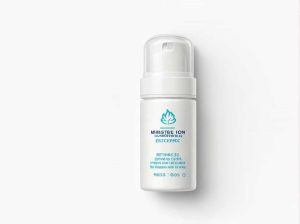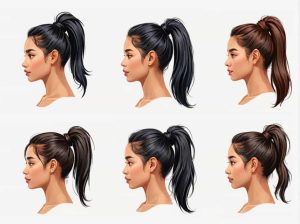A flaky scalp can be frustrating uncomfortable and sometimes embarrassing. Many people experience scalp flaking at some point but the causes can vary from mild dryness to underlying skin conditions. Understanding the reasons behind a flaky scalp can help you find the right treatment and restore a healthy balanced scalp.
Common Causes of a Flaky Scalp
1. Dry Scalp
One of the most common reasons for scalp flaking is dryness. When the scalp lacks moisture it becomes irritated and sheds small white flakes. This can be caused by:
- Cold or dry weather
- Overwashing with harsh shampoos
- Lack of hydration in the body
2. Dandruff (Seborrheic Dermatitis)
Dandruff is a chronic scalp condition caused by excess oil production and an overgrowth of yeast called Malassezia. It results in large greasy flakes that may be accompanied by itching and redness.
3. Product Buildup
Using too many hair products such as gels sprays and dry shampoos can cause residue to accumulate on the scalp. This buildup can lead to irritation flaking and even clogged hair follicles.
4. Scalp Psoriasis
Psoriasis is an autoimmune condition that causes thick scaly patches on the skin including the scalp. The flakes from psoriasis are often silvery-white and may come with itching or soreness.
5. Eczema (Atopic Dermatitis)
Eczema can affect the scalp causing dryness inflammation and intense itching. People with eczema may experience flare-ups due to stress allergens or weather changes.
6. Fungal Infections
A fungal infection such as tinea capitis (ringworm of the scalp) can lead to scaling flaking and hair loss. This condition often requires antifungal treatment.
7. Poor Diet
A lack of essential nutrients such as omega-3 fatty acids zinc and vitamin D can contribute to an unhealthy scalp. A balanced diet supports scalp health and reduces flakiness.
8. Hard Water
Hard water contains high levels of minerals like calcium and magnesium which can dry out the scalp and cause flaking. Using a water softener or a clarifying shampoo may help.
How to Treat a Flaky Scalp
1. Use a Gentle Hydrating Shampoo
Switch to a sulfate-free shampoo that nourishes the scalp without stripping away natural oils. Look for ingredients like:
- Aloe vera
- Coconut oil
- Tea tree oil
- Salicylic acid (for dandruff)
2. Try an Anti-Dandruff Shampoo
If dandruff is the cause use a medicated shampoo containing:
- Zinc pyrithione
- Ketoconazole
- Selenium sulfide
- Coal tar
These ingredients help control the yeast and oil production that contribute to dandruff.
3. Exfoliate Your Scalp
Just like facial skin the scalp benefits from gentle exfoliation to remove dead skin cells and product buildup. Use a scalp scrub or a soft-bristle brush before shampooing.
4. Moisturize Regularly
For dry scalps applying natural oils like argan oil jojoba oil or coconut oil can provide deep hydration and reduce flaking. Massage the oil into your scalp before washing your hair.
5. Avoid Harsh Hair Products
Limit the use of styling gels sprays and dry shampoos as these can lead to buildup and irritation. Opt for lightweight non-comedogenic products.
6. Maintain a Healthy Diet
Eat foods rich in vitamins and minerals that promote scalp health such as:
- Fatty fish (salmon sardines)
- Nuts and seeds (walnuts flaxseeds)
- Leafy greens (spinach kale)
- Eggs and dairy products
7. Reduce Stress
Stress can trigger or worsen scalp conditions like eczema and psoriasis. Practice relaxation techniques such as meditation yoga or deep breathing exercises.
8. Check Your Water Quality
If you suspect hard water is affecting your scalp consider installing a shower filter or using a chelating shampoo to remove mineral buildup.
When to See a Doctor
If your flaky scalp persists despite home treatments or if you experience severe itching redness or hair loss consult a dermatologist. You may need prescription-strength treatments such as medicated shampoos corticosteroids or antifungal medications.
A flaky scalp can result from various causes including dryness dandruff product buildup and skin conditions like psoriasis. Identifying the underlying reason is key to finding the right treatment. By maintaining a healthy scalp care routine using the right products and addressing any underlying issues you can achieve a flake-free comfortable scalp.



